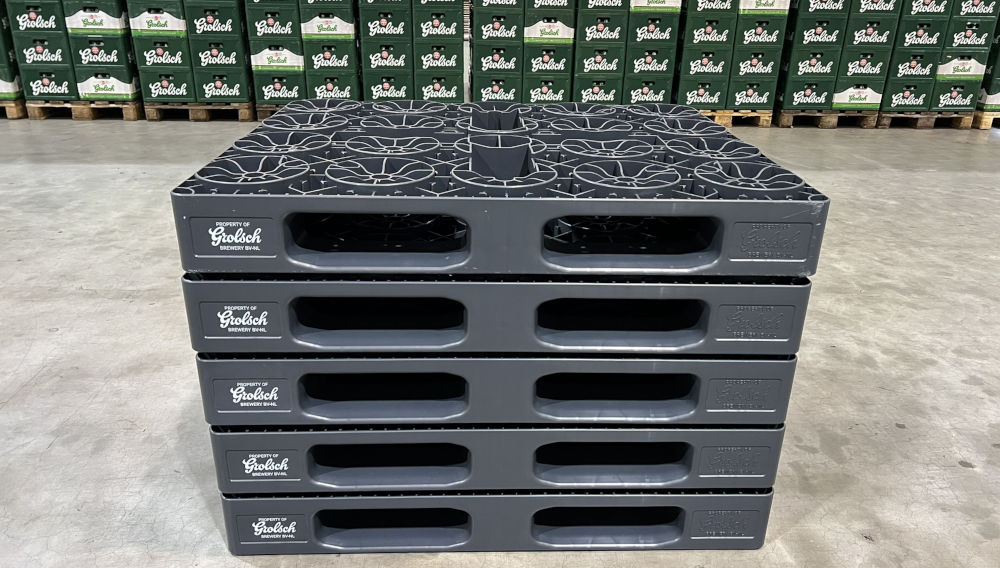Brewing to net zero
Hoofddorp | With their sustainable pallets made from recycled plastic, sustainable reusable packaging specialist Schoeller Allibert and Dutch brewer Royal Grolsch are taking another step towards a circular economy.
The current keg pallets no longer met the company’s needs. Their heavy weight drove up transportation costs and related CO2 emissions, while outdated molds made them harder to source and less reliable. But it wasn't just about logistics and function – Grolsch also wanted to achieve its ambitious sustainability goals.
Solution for the circular economy
Schoeller Allibert delivered a tailor-made keg pallet that meets all the brewery's requirements. The new load carriers are made of 100 percent post-consumer recycled plastic and are also 12 kilograms lighter than their predecessors. Grolsch can therefore significantly reduce the material used.
The reduced weight of the pallet is achieved through a special honeycomb structure, but also through a different production technique. Instead of using a low-pressure process, the experts manufacture the keg pallets using a high-pressure injection molding process. The recycled plastic comes from post-consumer material – i.e. used bottles and packaging that are collected, sorted, cleaned and processed into new products. On the other hand, old pallets (post-industrial material) are also used. This reduces emissions by around 83 percent compared to pallets made from virgin materials. Once the load carrier has reached the end of its life cycle, Schoeller Allibert takes it back and recycles it.
Optimum handling, individual design
The new pallet offers even more features for the brewery's day-to-day operations. The honeycomb structure makes it lighter and stronger. Forklift trucks can also pick it up more easily thanks to the smoother fork entries, which means that hardly any damage occurs. The stackable design enables a seamless transition between old and new pallets, allowing the user to use both versions in parallel. In addition, the stackability reduces the space required for return transportation, which also reduces CO2 emissions – as fewer trips are required. The new pallets have been in use since January 2025.
Keywords
recycling packaging kegs sustainability pallets company news
Source
BRAUWELT International 2025
Companies
- Schoeller Allibert GmbH, Berlin, Germany

